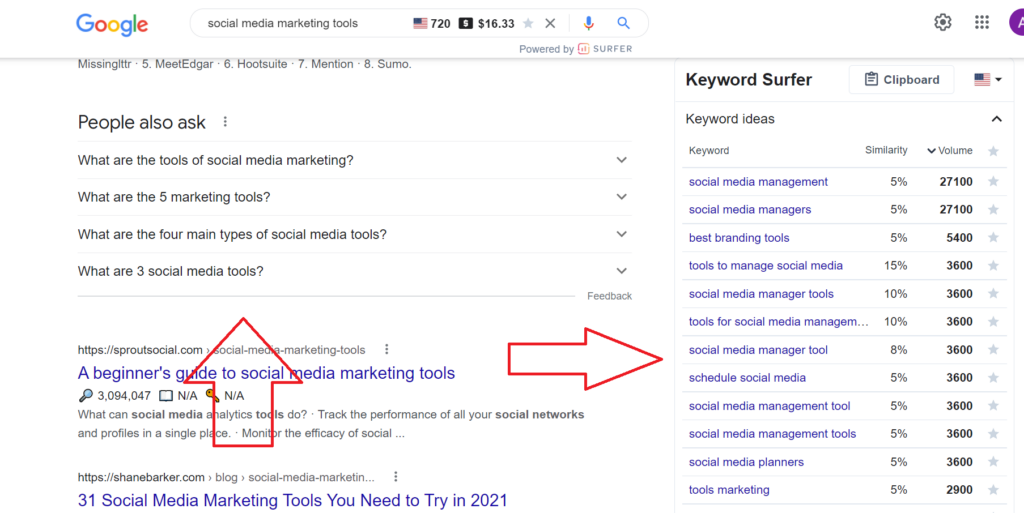Did you know that you can get so much more out of your SEO strategy with simple tweaks, like paying more attention to the way you organize your keywords?
Since the BERT update, Google started getting gradually better at understanding natural language. In other words, it got better at understanding how humans speak.
This means that search engines can now understand synonyms better. And they understand what falls into a broader topic. This is where keyword clusters come into play.
What Are Keyword Clusters?
As the name suggests, keyword clusters are groups of keywords that speak to the same topic and, more importantly, to the same search intent.
For example, “rustic decorations” and “farmhouse decorations” or “rustic home décor ideas” are different keywords but someone looking to change the look of their home might search for any of these phrases.
Why Should You Bother with Keyword Clusters?
A good question! Should you add all the keywords in a cluster to a single piece of content or spread them out on several pages? Modern SEO says to go with the former.
Here’s why:
- Keyword clusters help search engines make connections between your pages easier.
- Looking at the example above: if your page only ranks for “rustic decorations”, you will be missing out on a good share of searches.
- Having one page rank for multiple terms in the same clusters consolidates your first spots and can bring you up to 10 times the amount of traffic a single keyword would.
- Search engines (Google, most notably) reward holistic content, that’s in-depth and covers everything about a topic. I’m talking about the type of content that doesn’t prompt the reader to go back to search results looking to complete the information you offered. Keyword clustering helps your content go in-depth.
- It’s easier to write: when you use similar terms, your content sounds more natural. It’s easier and more appealing to read.
Topic clusters are a good way to get the best of both worlds: you can have different blog posts for different topics. Then, you can group them on a single pillar page with a neat table of contents and create a mega-guide. Each sub-topic will link to the pillar page, so when one subtopic ranks well, it will lend its “SEO juices” to everyone in the cluster.
Let’s see keyword clusters in action.
How to Build Effective Keyword Clusters
Before you say clusters may limit the keyword opportunities out there, hear me out. You can build keyword clusters around almost any long-tail keyword you’ve identified.
So, to begin with, identify a profitable keyword that matches users’ search intent and your business goals. Let’s say I want to sell SEO courses and, to begin with, I need to establish my expertise and attract SEO newbies. I would begin with “what is SEO?” as my seed keyword.
The cluster may look like this: what is SEO? -> introduction to SEO -> the basics of SEO -> what is SEO and how does it work?
And so on. You got the point.
This is definitely not the only keyword cluster I can create for SEO beginners. Here’s another example: SEO tips and tricks -> SEO best practices -> on-page SEO tips -> off-page SEO tips.
How can you come up with the keywords in your cluster?
Start with a good old Google search. In the “related section” or “people also ask” boxes you’ll find suggestions you can add to your cluster. You can also use Google Ads for this or your favorite paid SEO research tool.
Once your tool of choice comes up with suggested keywords, find the ones that bear some similarities:
- They have a similar search volume.
- They have a similar ranking difficulty.
- They can be grouped around the same search intent.
All these factors are equally important. If you miss the semantic relevance, your topic cluster will not make sense. If you optimize for keywords with widely different difficulty or search volume, you risk some of them not ranking at all.
For example, if I want to create a topic cluster for a company searching for social media marketing tools, I get these suggestions from Google and from my Keyword Surfer plugin:

See all those keywords with a volume of 3600? They can all go into this cluster. But I would definitely skip “social media management” or “best branding tools” – these are great starters for other topic clusters.
Wrapping Things Up
Google and other search engines have spent years (and billions of dollars) getting their solutions to “speak human”. And they’re just getting started. This is what the future of SEO looks like – semantic relevance and search intent all wrapped into a nice blanket of high quality content.
Topic and keyword clusters are strategies that keep on giving because you can easily add to them. Spotted a new keyword that works for one of your best pillar pages? Create a blog post around it and add it to the page. It will rank much faster (and better!) than anything your competitors may write from scratch and betting only on that single keyword.





